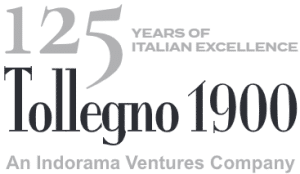 They have in common a long family history, the attention they pay to the choice of wool, a 360° sustainable vision that focuses not only on the environment and its care, but also on people, their well-being and the promotion of a high quality of life. What links Tollegno 1900 to Taylors Run, a sheep and goat farm in the New England Tablelands in New South Wales (Australia), is precisely the sharing of ideals that are also reflected in practice. This is supported by Michael Taylor, a sixth-generation breeder, at the helm of a farm that extends over 750 hectares in an environmental and meteorological context that favors the well-being of merino sheep. “Our region,” explains Michael, “is located at an altitude of around 1000 metres and has to deal with cold winters where temperatures drop to -15°C and with frosts from March to November. Our summers, on the other hand, are hot, although we rarely exceed 30°C. These conditions, combined with our native pastures rich in biodiversity, are perfect for breeding top-quality ultra-fine Merino wool which, with a diameter of less than 17.5 microns, guarantees extreme softness when in contact with human skin.” Michael’s job is the result of a family passion: “I have been working full-time on the family farm for 20 years. After spending 10 years away from home studying and working in civil engineering, as well as starting a career as a professional photographer, I returned to my “world,” got married and now I have three children. My wife Milly and our children work part-time with me and during peak periods we employ skilled labour for jobs such as sheep shearing. My family, starting with my grandparents and especially my parents, have worked hard to re-green our land after previous generations had pushed the limits of production too far. We have planted over a quarter of a million trees and currently have about 23% tree cover, with plans to reach 30%, which would be a stable level. These efforts are one of the main reasons I have returned to the farm permanently and it is now a wonderful place to live and work.”
They have in common a long family history, the attention they pay to the choice of wool, a 360° sustainable vision that focuses not only on the environment and its care, but also on people, their well-being and the promotion of a high quality of life. What links Tollegno 1900 to Taylors Run, a sheep and goat farm in the New England Tablelands in New South Wales (Australia), is precisely the sharing of ideals that are also reflected in practice. This is supported by Michael Taylor, a sixth-generation breeder, at the helm of a farm that extends over 750 hectares in an environmental and meteorological context that favors the well-being of merino sheep. “Our region,” explains Michael, “is located at an altitude of around 1000 metres and has to deal with cold winters where temperatures drop to -15°C and with frosts from March to November. Our summers, on the other hand, are hot, although we rarely exceed 30°C. These conditions, combined with our native pastures rich in biodiversity, are perfect for breeding top-quality ultra-fine Merino wool which, with a diameter of less than 17.5 microns, guarantees extreme softness when in contact with human skin.” Michael’s job is the result of a family passion: “I have been working full-time on the family farm for 20 years. After spending 10 years away from home studying and working in civil engineering, as well as starting a career as a professional photographer, I returned to my “world,” got married and now I have three children. My wife Milly and our children work part-time with me and during peak periods we employ skilled labour for jobs such as sheep shearing. My family, starting with my grandparents and especially my parents, have worked hard to re-green our land after previous generations had pushed the limits of production too far. We have planted over a quarter of a million trees and currently have about 23% tree cover, with plans to reach 30%, which would be a stable level. These efforts are one of the main reasons I have returned to the farm permanently and it is now a wonderful place to live and work.”
What does “being sustainable” mean to you?
To me, sustainability balances economic, social, and environmental goals. On our farm, this includes planting trees to shelter livestock, which improves welfare and productivity, while offering added benefits like timber, ecosystem services, and opportunities in carbon markets. Annually, I plant 2,000-3,000 trees, motivated by their transformative impact on our landscape and animals.
Merino wool’s renewability embodies sustainability—it grows annually, is biodegradable, and connects us to ethical, natural fibre production. Our integrated approach combines livestock and forestry, fostering resilience against market and climate changes.
What are the next challenges and goals?
Farming’s unpredictability is a challenge, with shifting rainfall, pests, and markets affecting operations. However, Merino sheep are hardy and adapt well, with their wool reflecting the year’s environmental conditions, much like fine wine.
Looking ahead, I aim to enhance traceability by offering semi-processed wool directly to conscientious brands, showcasing the circularity of natural fibres. Merino wool’s ability to nourish soil sets it apart from oil derived alternatives, and we continue promoting its benefits through partnerships with like minded companies which value the rich history and sustainability of wool.
At Taylors Run, we produce world-class wool, conserve nature, and feed communities—sustaining a legacy for future generations.





